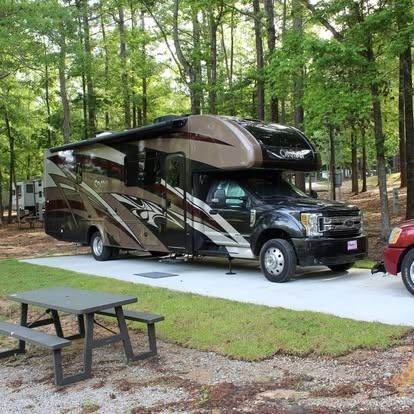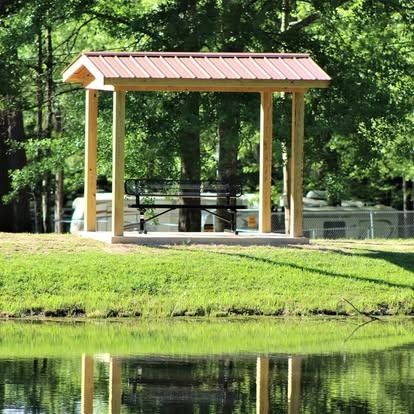Experience comfort and convenience at our full-service RV park
Visit Sleepy Hollow RV Park in Laurel, MS
Let our park be your getaway
Stop by our full-service RV park in Laurel, MS
Nestled in the heart of Laurel, MS, Sleepy Hollow RV Park offers travelers a serene retreat with top-notch amenities and exceptional service. Whether you're just passing through or planning an extended stay, our full-service RV park provides the perfect blend of comfort and convenience.
With spacious RV sites featuring complete hookups, we cater to all your RV needs. Our prime location in Laurel, MS ensures you're never far from the local attractions and dining options.
Experience the best of Mississippi hospitality at Sleepy Hollow RV Park. Reserve your spot today and make your journey unforgettable!
Our amenities set us apart
While there are plenty of campgrounds to park your RV, our year-round RV park is something different. Sleepy Hollow RV Park distinguishes itself from the competition with:
- RV rentals
- Additional lodging
- 24-hour surveillance
- Bathhouses with showers and restrooms
- Fully outfitted sites with electric and water hookups
- Amenities like a camp store, dog park, laundry facility and swimming pool
Plus, we’re conveniently located right near a variety of restaurants, shops and attractions!
Choose our full-service RV park for your next trip.

Why choose us?
We’re more than a year-round RV park — we’re a friendly community where guests feel at home. Our dedication to maintaining a clean, safe and welcoming environment sets us apart from the rest. With ongoing upgrades and attentive management, we’ll make sure your stay is nothing short of exceptional. Whether you're here for a night or a month, our team is committed to making your experience memorable.
Contact us today to make a reservation. Don’t forget to ask us about our discounts for veterans, first responders and military personnel.



